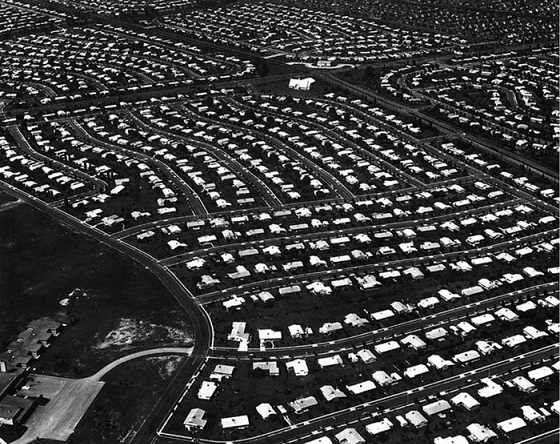Note: All submitted events must be approved before they appear in the calendar.

- This event has passed.
Profs & Pints: Beyond the White Picket Fence

Profs and Pints presents: “Beyond the White Picket Fence,” an exploration of the harsh reality of the idealized 1950s suburb, with Allen Pietrobon, adjunct professor of modern American history at American University and visiting professor at Trinity Washington University.
When recently asked in a survey what year our nation was “greatest,” a large majority of Americans picked some point in the 1950s. President Trump has similarly identified the early 1950s as a period when our country was at its peak. It’s easy to understand how some long for that era. After all, the country was globally respected, the economy boomed, and an abundance of well-paid industrial jobs grew the middle-class. Life was safe and pleasant in the newly built suburbs which had seemed to sprout up from farmlands overnight. About 15 percent of the population, or 20 million Americans, had moved from cities to suburban homes in places like Glenmont, Md., or Levittown, Pennsylvania, marking one of the largest migrations in American history. Owning a single-family home with an American-built car in the driveway soon came to symbolize the American dream.
This is the idyllic way the 1950s are remembered today: Welcoming. Friendly. Safe. White. The suburban 1950s ideal embodied the reality of racial division in postwar America, because African-Americans were largely barred from purchasing such suburban homes. As cities emptied of whites, “urban” became synonymous with black, and city centers were viewed as rife with poverty, drugs and crime. The suburbs became a prime battleground for civil-rights activists.
How and why did the unique form of suburban living first arise in America? What are the legacies of the suburbs and how did they shape American politics, culture, race relations, and gender dynamics? What can we learn about our ideas about the 1950s and how they continue to impact American culture and politics today? Considering how the “ideal” of the suburbs continues to invoke deep-seated notions of race, class, and gender, why do so many Americans remember such communities so fondly?
Hear these questions tackled by Professor Allen Pietrobon, who previously fascinated Profs and Pints crowds with great talks on Prohibition, the Gilded Age, and the history of American cuisine.
Advance tickets available at https://profspintsfences.brownpapertickets.com
